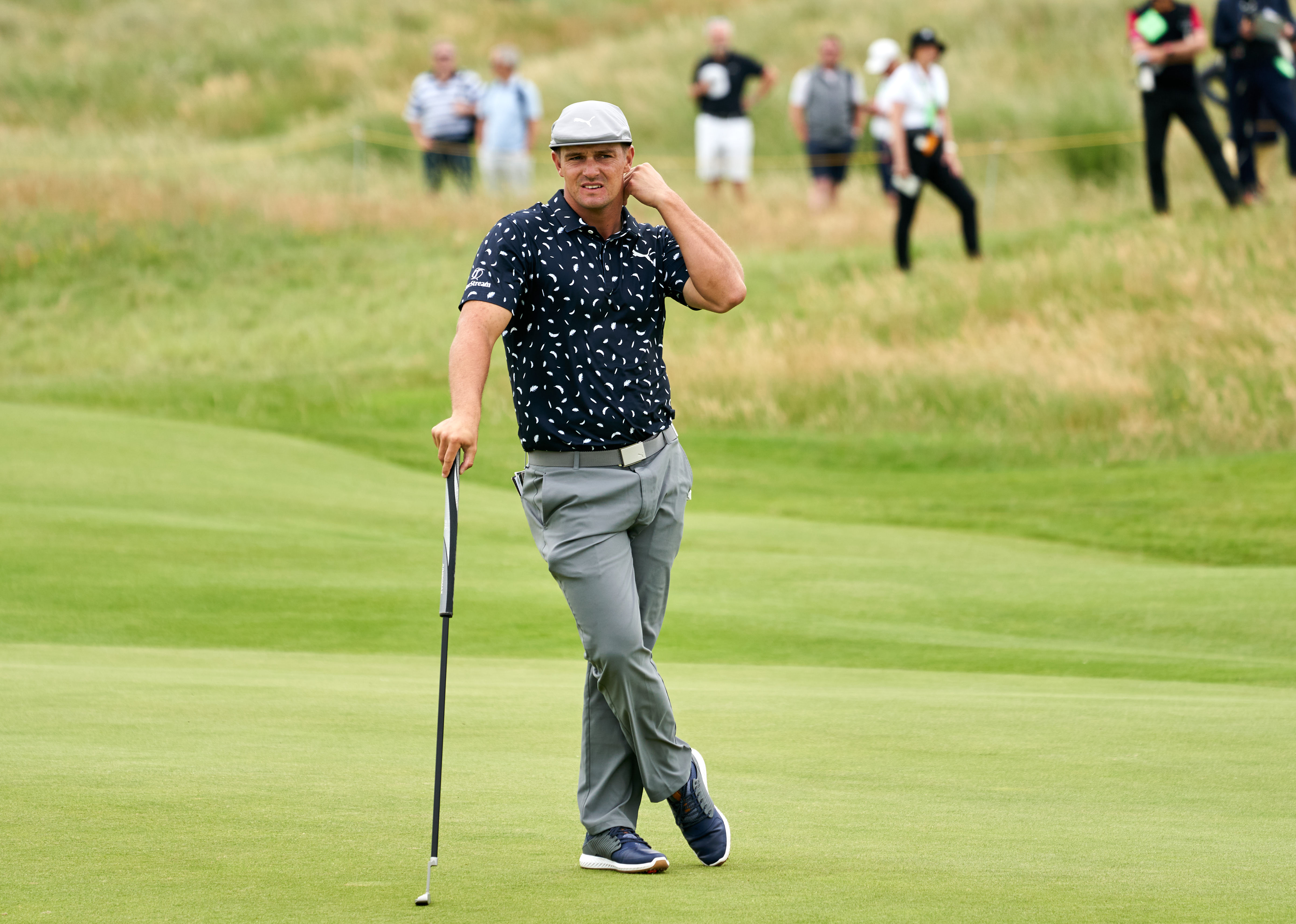Back in 2015, a college coach told Golf Channel reporter Ryan Lavner that within five years Bryson DeChambeau, who had just won the U.S. Amateur, would either be No. 1 in the world or in a straitjacket. That DeChambeau currently occupies neither position isn’t to say that both are now beyond the realm of possibility. It simply varies by the week which outcome he seems to advance toward.
The world No. 6 has won an army of admirers for his talent, work ethic, inventiveness and even his (almost) endearingly idiosyncratic persona. He’s polarizing, sure, but he’s a welcome addition to a sport oversubscribed with humdrum, khaki-clad clones. The life DeChambeau leads is not without challenges, to be fair. Public scrutiny can be brutally unkind to an athlete, especially one with a quirky personality, and moreso when the Simone Biles of social media trolling constantly has you in his crosshairs.
Yet it’s a career he has embraced. DeChambeau is an indefatigable marketer, with enough sponsor decals to qualify him for pole position in the Daytona 500. He has at times alienated fans with an incommodious inability to zip his lips when things go sideways, but the fact that his last two tournament starts have been marked with disrespectful and unprofessional conduct toward two of his sponsors should be cause more for concern than for comedy.
DeChambeau began the Rocket Mortgage Classic with an amusing insistence that his 44-stroke meltdown on the final nine holes of the U.S. Open was bad luck, a storyline quickly overshadowed when his longtime caddie quit. He subsequently blew off media obligations for two days on his way to missing the cut, despite being both the defending champion and personally sponsored by Rocket Mortgage.
Then came Thursday’s histrionics at the Open Championship, when after a mediocre opening round he turned a blowtorch on his equipment manufacturer, Cobra, saying his driver “sucks.” To its credit, a Cobra rep returned a haymaker, claiming the company’s star player (sorry Rickie!) is never happy and likening him to an 8-year-old child. By nightfall, DeChambeau issued a mea culpa that was billed as an apology, never mind that it didn’t actually include an apology.
It was all catnip for golf fans and British tabloids, which lavished more barrels of ink on his outburst than on the Open leader, Louis Oosthuizen. But DeChambeau’s conspicuous difficulty in handling emotional situations is a recurring, troubling theme in his young career.
After blowing a lead in Porsche European Open in 2018, he barely managed to shake the winner’s hand before storming away. We’ve watched querulous exchanges with rules officials and the lecturing of a cameraman in Detroit, after which he said media ought to protect his brand and not show him in a negative light. Even before scorching Cobra, he tried to gaslight his way through a press conference at Royal St. George’s by insisting that he does shout “Fore!” to warn fans of incoming tee shots when there is plentiful evidence that he frequently does not.
It’s not a surprise that DeChambeau’s short fuse was lit at Royal St. George’s. Links golf often corrodes whatever psychological shield a golfer has constructed, each capricious bounce or ill-timed gust of wind like a drop of acid rain. There’s a reason why players like Tom Watson and Nick Faldo won the Open while guys like Bubba Watson and Sergio Garcia have not. The golf we see weekly on the PGA Tour is a one-dimensional test of execution and those who play for a paycheck prize that simplicity. Links golf, however, also tests imagination, perseverance and patience. Those are exam papers suited to stoics, but not to the emotionally volatile. Thus, one Watson (Tom) has five Claret Jugs to go with his two green jackets while his namesake (Bubba) has none.
DeChambeau’s unyielding pursuit of perfection in an inherently imperfect game is a daunting standard to live by, and a thoroughly impossible one to expect others to live by too. He’s accustomed to calculating precisely the journey his ball will take toward its target, but at the Open every ball takes two journeys: one through the air and another that begins when it hits the ground and caroms along ancient contours. It is not a style of golf suited to precision, or to emotion (unless, like Seve Ballesteros, it is channeled successfully). Royal St. George’s was always destined to be a demanding week for DeChambeau, but it didn’t need to be a disastrous one.
He rendered it so by proving, yet again, that maturity has no correlation with age.
It’s hard to escape the feeling that DeChambeau is hurtling toward a reckoning with the many things that chafe him — his own elusive standards, criticism of his behavior and utterances, Brooks Koepka — and it’s in such moments that the team around an athlete must justify their existence. This is no time for mute courtiers who lack the courage to tell the king that his subjects are restless with his intemperate rule.
The life of a professional golfer — particularly a successful one — does not want for emotionally difficult situations, and learning how to govern them is essential for both mental health and reputational standing. Surely there is one adult in the room who will help DeChambeau not reduce himself to a childish caricature. He needs that, just as much as this game needs him.

